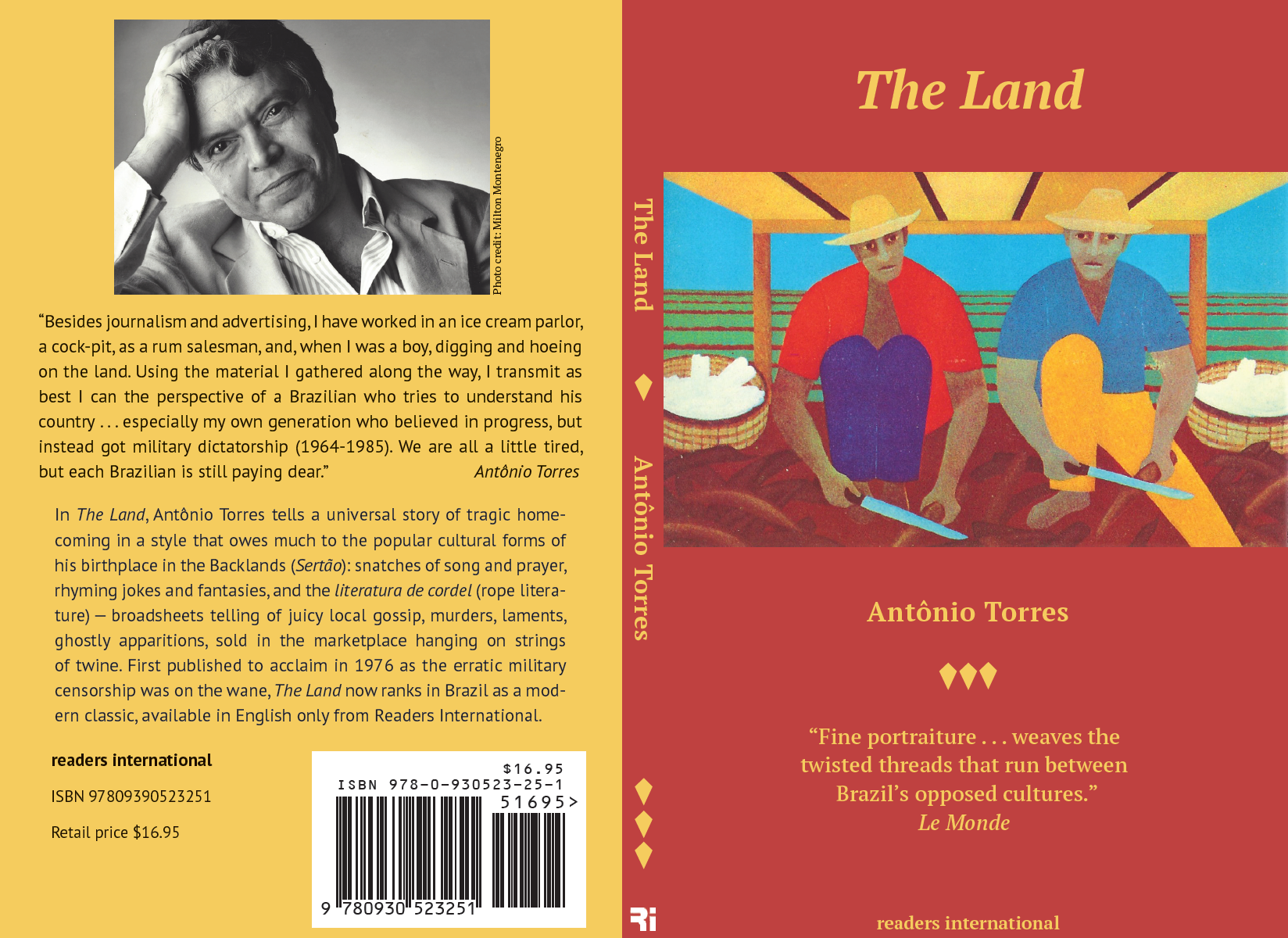Repercussão em diversos jornais:
Acclaim for The Land
“An almost classic account of the notoriously poor area of its author’s birth.” – London’s Financial Times
“Tears at you like an early Buñuel movie.” – The Observer
“Vivid, moving, explosive . . .” – San Francisco Examiner
“Full of the unanswered quesJons of a third world country in transiJon.” – Publishers’ Weekly
“I very much admire the irony, the warmth and style of The Land, which so brilliantly describes poor people in a village whose life is leaving it.” – Doris Lessing
“UpliPed by Torres’ melodic prose and inJmate knowledge of rural Brazil . . .” – Kirkus Reviews
“The Land is wriTen in a spare, austere, inward-looking style which mirrors the harshness of the Sertão and plunges the reader into the hopelessness, sense of loss, random violence and fragmentaJon the people suffer. . . . At a meeJng with the author in Santo André, the most industrial zone of São Paulo, one thousand naJve baianos turned up: “We feel we are the characters in your books. . . .” – Guardian
“Part of the growing awareness of the importance of LaJn American wriJng, and especially the rich cultural heritage of Brazil with its mix of African, Amerindian and European tradiJons.” – Third World Quarterly
“Nelo’s story becomes an emblem . . . of the transiJon these people must make to an inhospitable, urbanised twenJeth century where only the very old retain the centuries-long love of the land itself, now largely owned by the banks . . . An elegant, finely structured work.” – The Scotsman
“In a style cut back to the essenJals, drawing on the folklore and culture of Brazil’s impoverished ‘backlands’ and uJlizing fragments of songs, jokes, prayers, and popular tales, Torres shows us a community in which those who can leave do so, and those who remain dream of making it to the city, São Paulo, where there are ‘30 leagues of paved streets’ . . . The Land speaks in the language of exile and biTer homecoming and it repays careful reading.’” – Tribune

